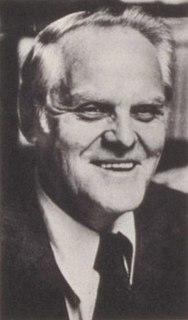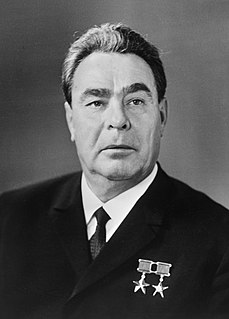A Quote by Noam Chomsky
In fact, what were called the socialist countries in Eastern Europe were the most anti-socialist systems in the world. Workers had more rights in the United States and England than they had in Russia, and it was somehow still called socialism.
Related Quotes
On the world scene, it is our position that there is a resurgence of socialism taking place. The world's socialist and Communist forces are now on the move to restore socialism in the former socialist countries and to strengthen the existing socialist countries... there is a new socialist world on the horizon, a resurgence of the world revolutionary process.
It is not to save capitalism that we fight in Russia … It is for a revolution of our own. … If Europe were to become once more the Europe of bankers, of fat corrupt bourgeoisies we should prefer Communism to win and destroy everything. We would rather have it all blow up than see this rottenness resplendent. Europe fights in Russia because it [i.e., Fascist Europe] is Socialist. what interests us most in the war is the revolution to follow The war cannot end without the triumph of Socialist revolution.
Hitler did not have Mussolini's revolutionary socialist background... Nevertheless, he shared the socialist hatred and contempt for the 'bourgeoisie' and 'capitalism' and exploited for his purposes the powerful socialist traditions of Germany. The adjectives 'socialist' and 'worker' in the official name of Hitler's party ('The Nationalist-Socialist German Workers' Party') had not merely propagandistic value... On one occasion, in the midst of World War II, Hitler even declared that 'basically National Socialism and Marxism are the same.'
In 1949, I believed that social progress, the triumph of the proletariat, socialism would lead to the emancipation of women. But I saw that nothing came of it: first of all, that socialism was not achieved anywhere, and that in certain countries which called themselves socialist, the situation of women was no better than it was in so-called capitalist countries.
The switch to the market in Eastern Europe, of course, has not exactly been one of the greatest advertisements for the market. There's no question the socialist system - and I hate to use the word 'socialist,' but I suppose some description of a system in which the state is in control - was breaking down, really collapsing. In these countries, most markedly in Russia itself and in a number of the others, it obviously was based on a tyranny, which is unacceptable even if it were producing good economic results, which it was not.
The Bolshevik revolution was a counter-revolution. Its first moves were to destroy and eliminate every socialist tendency that had developed in the pre-revolutionary period. Their goal was as they said; it wasn't a big secret. They regarded the Soviet Union as sort a backwater. They were orthodox Marxists, expecting a revolution in Germany. They moved toward what they themselves called "state capitalism," then they moved on to Stalinism. They called it democracy and called it socialism. The one claim was as ludicrous as the other.
While writing my memoir, 'When Skateboards Will Be Free,' I would sometimes have to pore over hours of microfilm at the New York Public Library in order to try to get one obscure detail right. For instance, was the Socialist Workers Party originally called the American Workers Party or the Workers Party of the United States?
The reason socialism has failed around the world every time it's been tried is because people in socialist countries have looked at the United States and have said if they can have it that good, we can. It's a failed, flawed ideology, but if you ask socialists why it's always failed, it's because the United States has stood in the way.
I think most of the Washington foreign policy establishment exists in a fantasy world when it comes to Syria. They fundamentally don't understand that Russia and Iran, from the beginning, had much more at stake in Syria than the United States did. Russia and Iran were going to do everything possible in order to keep Bashar al-Assad in power.
After the Second World War, facilitating the establishment of the UN and aiding the reconstruction of Europe, the United States was widely viewed, at least in the West, as a benevolent hegemon. In the non-West, the US was often perceived as a supporter of the colonial powers in their struggle to maintain control over their colonial possessions, and was viewed far more critically, especially by emerging elites that were more inclined to socialist development paradigms than to the capitalist ethos favoured by Washington.
When external and internal forces hostile to the development of socialism try to turn the development of a given socialist country in the direction of the restoration of the capitalist system, when a threat arises to the cause of socialism in that country ... this is no longer merely a problem for that country's people, but a common problem, the concern of all socialist countries.
Some people say Russia is running at 50 percent of its gross domestic product under that during the Communist period. In fact, none of the countries seems to have recovered the level that they had under communism, although the other countries in Eastern Europe are doing better than Russia and particularly the Czech Republic seems to be doing modestly well. East Germany I can't count because they have a rich uncle. You have economic benefits which have nothing to do with the workings of the system.




































